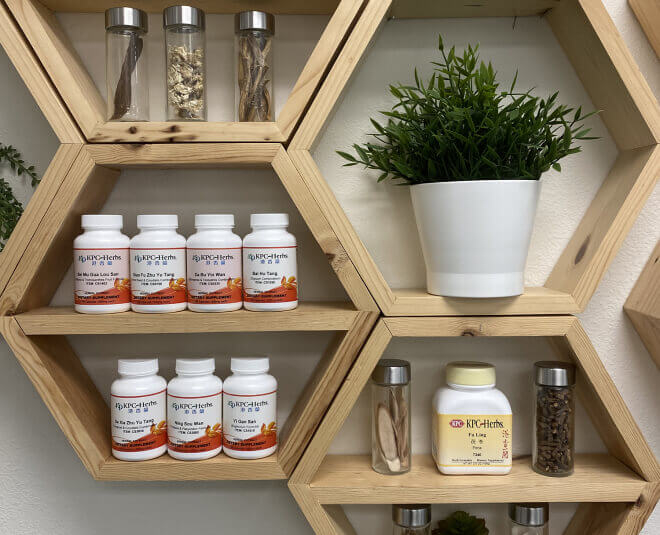 Anyone who has had a few too many drinks on a night out knows what the next morning can bring. The only surefire way to prevent a hangover is to drink in moderation or not at all, but despite having the best intentions going into a social gathering or special occasion, it’s easy to overindulge. When you wake up feeling worse for wear, is there anything that can help you get back on track?
Anyone who has had a few too many drinks on a night out knows what the next morning can bring. The only surefire way to prevent a hangover is to drink in moderation or not at all, but despite having the best intentions going into a social gathering or special occasion, it’s easy to overindulge. When you wake up feeling worse for wear, is there anything that can help you get back on track?
Traditional Chinese Medicine warns against excessive alcohol consumption but doesn’t prohibit it in moderation. If you overdo it, a TCM practitioner can recommend natural hangover remedies that may help make the day after a little less unpleasant.
What Causes a Hangover?
Alcohol enters your bloodstream within minutes of your first sip. It flows through your digestive tract, starting in your stomach and small intestines, before traveling to your liver for processing. The liver is the primary site of alcohol metabolism, the process of breaking down and detoxifying alcohol.
When alcohol is broken down, it produces a toxic byproduct called acetaldehyde that contributes to internal inflammation and can cause significant damage to the liver. Your body works hard to eliminate this toxin as quickly as possible.
Simultaneously, alcohol has other negative impacts on your internal functions. It causes an increase in urine production, which can lead to dehydration, and it can irritate the lining of your stomach. It can also lower your blood sugar, disrupt your sleep, enlarge your blood vessels and trigger an inflammatory response from your immune system.
How Does Drinking Alcohol Affect the Body?
The internal changes described above manifest as the familiar symptoms of a hangover:
- Dizziness, lightheadedness, or a sense of the room spinning
- Fatigue and weakness
- Headaches
- Muscle aches or shakiness
- Increased sensitivity to sound and light
- Nausea or vomiting
- Thirst and dry mouth
- Poor or decreased sleep
- Mood disturbances, such as anxiety and irritability
- Decreased ability to concentrate
Different medical systems have different approaches to alleviating these discomforts.
The Western Medical Perspective on Hangovers
The treatment of hangovers in Western medicine focuses on rehydrating the body and soothing painful symptoms. Over-the-counter analgesics are used to cope with headaches, muscle aches, and abdominal cramps. Water and foods with a high water content (e.g., watermelon) should be consumed to counteract dehydration. Coconut water, sports drinks, or other isotonic beverages can help replace lost electrolytes.
Where diet is concerned, Western physicians typically recommend foods that are bland and easy to digest, but high in vitamins and minerals. This helps to restore the body’s depleted resources without further upsetting the stomach.
The Traditional Chinese Medicine Perspective on Hangovers
In TCM, overconsumption of alcohol is believed to cause excesses of heat and dampness (known together as damp-heat) in the body. Remedies to prevent or relieve a hangover focus on clearing these excesses to restore a balanced internal state, as well as on supporting liver function and improving the circulation of qi.
The liver is one of the most important organs in TCM theory. It is considered responsible for the smooth flow of qi and blood through the body and plays a role in regulating digestion and emotions. In the TCM view, excessive alcohol intake causes the liver to become overburdened with toxicity and heat, creating disharmony. The free movement of qi and blood is impeded, and the blood may become weaker and deficient.
Using Herbal Chinese Products for Natural Hangover Relief
A TCM practitioner may prescribe a variety of herbs, formulas, and foods to clear heat, drain dampness and address blockages in the liver, such as:
Ginger
Ginger may help aid digestion, reduce nausea, and settle an upset stomach. A meta-analysis published in the Journal of the Academy of Nutrition and Dietetics in December 2019 found that ginger reduced vomiting in cancer patients undergoing chemotherapy by 60 percent. Ginger can be brewed into tea and mixed with honey to create a soothing hangover drink.
Ginseng
Ginseng is a popular herbal remedy used for a number of purposes, including the reduction of hangover symptoms. A randomized crossover study conducted by researchers in Korea found that red ginseng taken as a tea improved alcohol metabolism and relieved hangover symptoms in men.
Kudzu
Kudzu has been used in traditional Chinese medicine as a remedy for alcoholism and the after-effects of alcohol consumption. Modern practitioners may recommend kudzu to help reduce headaches, dizziness, upset stomach, and vomiting.
Monk Fruit
Monk fruit, also known as luo han guo or arhat, is a small green melon native to southern China. Today it is often used as a low-calorie sugar substitute. Traditionally, monk fruit’s benefits are believed to include stabilizing blood sugar, lowering inflammation, and alleviating the extreme thirst and dry cottonmouth associated with a hangover.
Chrysanthemum
In TCM, chrysanthemum is associated with the liver meridian. Its primary functions are to pacify the liver, release toxins, dispel wind, and clear heat. Chrysanthemum is a traditional remedy for symptoms like headache, blurred vision, dizziness, and muscle spasm.
Mung Bean
Mung beans have been revered for their culinary and wellness virtues for thousands of years in Asia. They are known in TCM for their ability to tonify yin, clear heat and dampness, regulate water and eliminate toxins. They are considered especially good for addressing damp heat.
Ge Hua Jie Cheng San
Also known as the Pueraria Flower Formula, Ge Hua Jie Cheng San contains herbs such as kudzu, ginseng, and citrus peel to help fortify the stomach, disperse damp heat, and resolve alcohol toxicity.
Ping Wei San
Ping Wei San or Magnolia and Ginger Formula dries dampness, promotes the movement of qi, and harmonizes the stomach. This formula may help calm the stomach and ease digestion, providing relief from nausea or vomiting caused by alcohol consumption.
Huo Xiang Zheng Qi San
Huo Xiang Zheng Qi San (Agastache Formula) addresses symptoms associated with interior dampness stagnation patterns, including fever and chills, headache, diarrhea, nausea, and vomiting. It may be soothing for an upset stomach.
Bo He Wan
Bo He Wan is often used for dispelling food stagnation after overeating, especially with indigestion, distention, bloating, vomiting, nausea, and acid regurgitation. The formula’s ingredients are considered useful for helping to alleviate a hangover as well as prevent one from happening in the first place.
Consult a Licensed TCM Practitioner for More Information
Many factors inform which herbs and formulas a patient should take, including symptoms, body type, any concurrent medical treatments, and even environmental influences. To receive the maximum benefit from any TCM treatment, it is critical to consult with a licensed practitioner or herbalist and purchase only authentic Chinese herbal products.
KPC Herbs is proud to offer over five generations of experience and expertise in Chinese herbs supplements. It is our joy to share the ancient wisdom of Traditional Chinese Medicine with today’s practitioners and consumers. For help finding a local practitioner or more information about our products, please get in touch.
________
*Please note: These statements have not been evaluated by the FDA. This article is not intended to suggest specific treatments for patients or that any supplements mentioned prevent or cure diseases or problems. Before taking any herbs, all patients should discuss their options with a licensed practitioner, including any other medications the patient is currently taking, as there may be contraindications between pharmaceuticals and herbs.

